British Popular Culture(s) Network

British popular culture continues to experience extraordinary ideological and political provocations, whilst facing daunting commercial and socio-economic pressures.
The network is a community of connections across academia and the creative industries, establishing a third sector to support and sustain future work and collaborations through conferences, events, research, pedagogy and knowledge exchange.
Project details
| Project lead | Kat Flint-Nicol |
|---|---|
| Start date | 2025 |
| End date | Ongoing |
| Strategic alignment | School of Film & Television, Academy of Music & Theatre Arts, Fashion & Textiles Institute |
Britain has a vibrant heritage and history of popular culture, and a long tradition of cultural thinkers who have linked spheres of popular culture together, whilst approaching them as separate entities. Fundamental to a dynamic diverse, and sustainable popular culture is active creative participation and critical thinking to change, contest, and renew. The network continues this spirit by creating a space for scholars, researchers, and creative workers to come together to share, discuss, and foster ideas and practices which challenge assumptions, focus research and generate new thinking.
The network takes as its premise that popular culture is an evolving, dynamic social and creative process involving the self, community, and wider social structures which circulate and navigate capitalism. We explore and promote the richness, uniqueness, solidarity and precarity of regional popular cultures and how they entwine with wider discourses across the British Isles.
The network is open to researchers, academics, PhD students, practitioners, artists, curators, archivists and activists working in and across all areas of British popular culture and cognate disciplines. We are interested in all aspects of critical appreciation, cultural scenes and practices. The network is designed to support and encourage cross-disciplinary and transdisciplinary methodological frameworks.
Aims
- To foster connections, collaborations, and trajectories of research
- To promote inclusivity, critical discussion, and opportunities for networking
- To return academic research into public spaces
- To have an international reach
Upcoming conferences
Discover the plans currently taking shape for our second British Popular Culture(s) Network Annual Conference. Here, you'll find details on confirmed speakers and our Call for Papers.
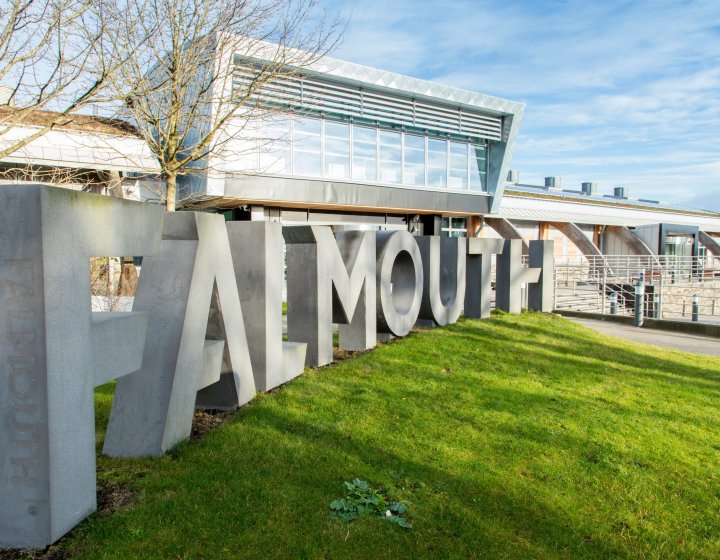
Thu 09 Jul 2026
This is a multi-day conference from 9-11 July 2026
British Popular Culture(s) Conference 2026
The conference aims to renew this collaborative practice by inviting participation from those involv...
Project team
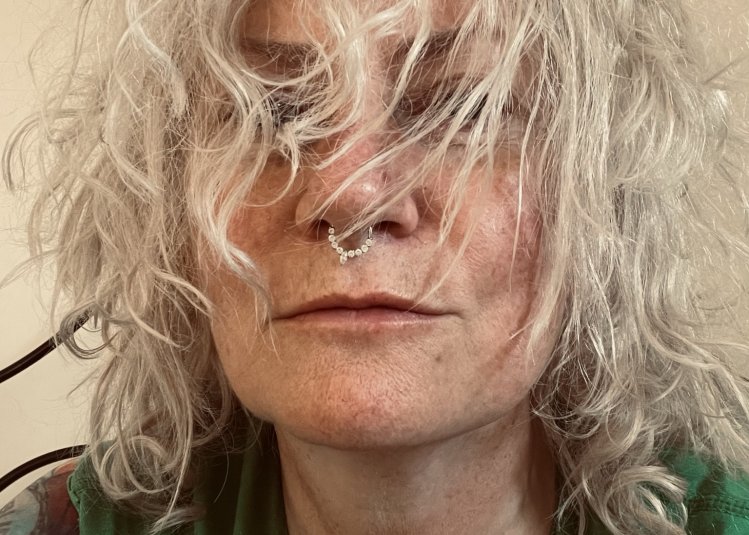
Dr Kat Flint-Nicol
Senior Lecturer, Film & Television
Kat is a Senior Lecturer in Film and joined Falmouth in the summer of 2023, having taught at Queen's...
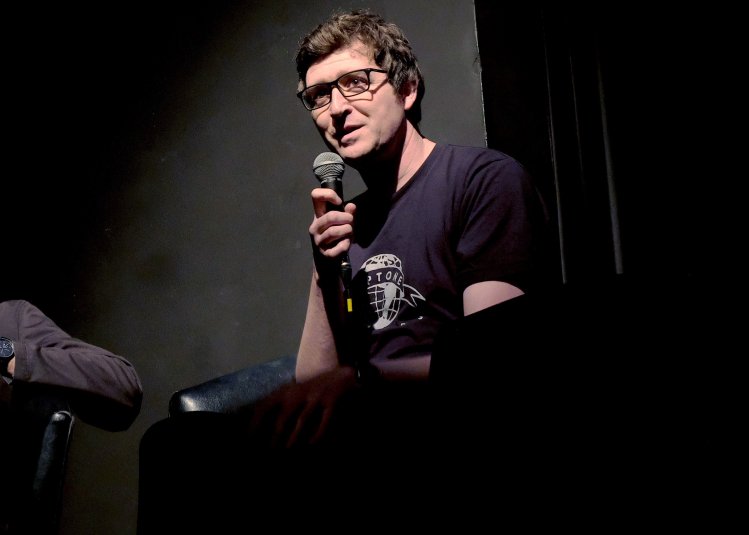
Professor Neil Fox
Professor of Film Practice and Pedagogy
As a proud first-generation university graduate from a working-class background in Luton, it is an h...
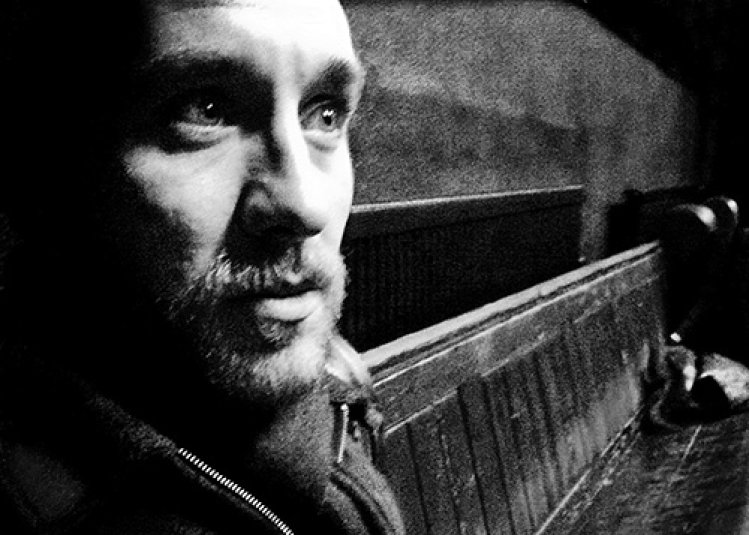
Dr Johny Lamb
Senior Lecturer, Music
Johny is a senior lecturer specialising in the study of popular music. He is a songwriter, composer,...
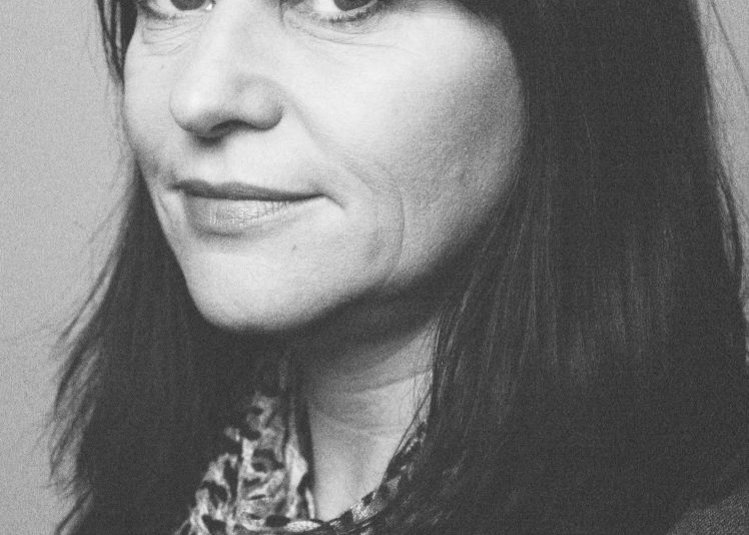
Dr Julie Ripley
Course Leader, BA(Hons) Costume Design for Film & TV
Dr Julie Ripley is a senior lecturer and course leader for BA(Hons) Costume Design for Film & TV...
Partners
The network partners with The Cornish Bank for the delivery of the Public-facing day of the conference. The collaborative relationship between the network and Cornish Bank furnishes future mutually beneficial research opportunities, as part of an ongoing strategic partnership between the Cornish Bank and Falmouth University.
Conference highlights 2025
Make sure to watch the highlights from our inaugural conference in 2025, which includes keynote lectures by Dr Joy White and Dr Alice Pember and conversations with director Mark Jenkin (Bait, Enys Men) and musician Adrian Utley (Portishead).
Conference programme 2025
9am – 9.15am, SoFT Building Atrium
Arrival/Registration/welcome refreshments available
SoFT Cinema, Welcome and Keynote 1
Welcome: 9.30 – 9.45
Keynote 1: 9.45 – 10.45am
Dr Joy White, University of Bedfordshire,
‘Made in the Manor? Gentrification, Austerity & Black British Music’
Session 1: 10.45am – 12 noon, Peter Lanyon Building
Panel 1A: PL Lecture 2
Finding your community
Chair:
Michael Peplar: Northeastern University – London
‘East London, Music Hall and Modern Urban Popular Culture: Placing the early Hoxton Hall in Context’.
Jeanie Sinclair, Falmouth University
‘The Season of the Witch: Women, Parties and Pop Culture in1960s St Ives’.
Jessica Beechey, Falmouth University
‘Cornish Identity, Marginalised Communities, and Sound Art as Political Agency’.
Panel 1B: PL Lecture 4
Digging your scene? Subcultural style
Chair:
Nick Clement, UAL Central Saint Martins
‘Style Transfer: The Role of the Glimpse and the Subcultural Stylist in the Context of the Southern Soul Boy Scene (1973-1982)’.
Russ Bestley, London College of Communication
‘Punk As Product: Selling the New Wave’.
Jake Hawkes, Central Saint Martins, UAL
‘Happy Days?: Examining Nostalgic Youth Culture in London 1978-1988 through Rockabilly and Psychobilly’.
Lunch: 12 noon - 12.45pm, Peter Lanyon Building, Rms 2 - 9
Session 2: 12.45 - 2.00pm
Panel 2A: PL Lecture 2
Ecologies of sound and practices of listening
Chair:
Jamie Dobson, UCA
‘Transparent sound: searching for enlightenment through embodied listening, fetish and transcendence in ‘golden eared’ audiophile communities’.
Abigail Wincott,. Falmouth University; Natalia Osorio-Ruiz, l’Université Paul-Valéry, Fauré Laurent, l’Université Paul-Valéry.
‘No presenter, just one of the gang: evolutions in UK politics podcasting’.
Will Jeffery, University of Sydney.
‘Echoes of Confinement: Class, Space, and Stylised Sound in Andrea Arnold’s Fish Tank (2009)’.
Panel 2B: PL Lecture 4
Is this where you belong? Cultural places; cultural spaces
Chair:
Vivienne Gaskin, Leeds Beckett.
‘From The East End to the Mall: Issues in Curation, Class and DIY Cultures 1991-2000’.
Nina O’Reilly, Central Saint Martins, University of the Arts London
‘King’s Crossings: art, culture, and regeneration in King's Cross’, London,
Dr Kay Calver (University of Bedfordshire), Dr Bethan Michael-Fox (Open University)
Bethan Radford (Falmouth University), Virma Jones (University of Bedfordshire), Fatima Ahmed (University of Bedfordshire)
‘Constructing the University student in British Popular Culture’.
Session 3: 2pm - 3.15pm
Panel 3A: PL Lecture 2
Narrations of power
Chair:
Jo Parsons, Falmouth University.
‘‘Addicted to Love’: Sex, Power, and Female Desire in Jilly Cooper’s Rivals’.
Ann Misiak, Falmouth University
‘The Outrun (2024): The Female Strength 'Lies Down in Green Pastures'’.
Nicola Coplin, Falmouth University
‘Abuse Narratives On Screen: The Auteur, Fringe Theatre and Baby Reindeer’
Panel 3B: PL Lecture 4
Whose Heritage?
Chair:
Rosemary Alexander-Jones, University of Warwick.
‘[English?] Heritage and Screen Tourism’.
Karolina Kosinska, Institute of Art of the Polish Academy of Sciences (IS PAN), Warsaw, Poland.
‘The Other Myths – The Way and Sherwood series as examples of Parallel Heritage’.
Jessie Seymour, Independent Researcher
‘Regency!punk; A creative intervention of Punk and Regency fashion through cosplay’.
Afternoon break: 3.15 – 3.45pm, Peter Lanyon Building, Rms 2 - 9
Session 4: 3.45 – 5pm
Panel 4A: PL Lecture 2
Production of cultures
Chair:
Rosie Gailor, QMUL.
‘Manufacturing Pop Culture Relevancy: Roald Dahl’.
Cosima Holmes, Independent Scholar/Falmouth University
‘Harry Potter and the Death of the Author — We should still be writing Harry Potter fanfiction’.
Rebecca Lloyd, Independent Scholar/Falmouth University.
‘“You’re saying that football is not about football?”: the multiple meanings of foot-the-ball in Terry Pratchett’s Unseen Academicals (2009)’.
Panel 4B: PL Lecture 4
Recording cultures
Chair:
Mark Fryers, The Open University.
‘The Last Hunter Gatherers: The Fisher Folk of British Culture’.
Maire Tracey, University of Salford.
‘Makerworld’.
Roel Meuleman, Falmouth University
‘Mark Jenkin’s Enys Men (2022): the cinematic (re-)construction of Cornish Iconography in a Timeless Landscape’.
Thursday evening: Vinyl night, 5pm onwards, Verdant Tap Room
Arrival: 9.15 – 9.45am, Teas/coffee
Keynote 2: 9.45 – 10.45am
Dr Alice Pember, University of Warwick, SoFT Cinema
‘New Girls on the Block: The Politics of Music and Dance in Women’s New Social Realist Filmmaking’
Session 5: 10.45am – 12 noon, Peter Lanyon Building
Panel 5A: PL Lecture 2
Ecologies of anxiety
Chair:
Rebecca Harrison
‘No Animals Were Harmed? The Political Ecologies of Star Wars Location Shoots in Britain’.
James Reath, Exeter University
‘Here Come The Sprays’.
Matthew Rogers, Falmouth University
‘Psychonavigating the (Sub)Urban Idyll – pervasive filmmaking in Andrea Arnold’s Bird (2024)’.
Panel 5B: PL Lecture 4
Quintessentially British?
Chair:
Frank Mannion, Birmingham City University
‘Quintessentially British: From Shakespeare to Downton Abbey: the Complexities of British Popular Culture on Screen’.
Nathaniel Weiner, Central Saint Martins.
‘The Country Gent and the Urban Subculturalist on Instagram: Imaginary Geographies, the National Past and Polysemy in British Heritage Menswear Brands’ Branded Content’ .
François Allard-Huver & Julie Escurignan, Université Catholique De L'Ouest
‘Black Mirror: A decade of British Realistic Dystopia’.
Lunch: 12 noon - 12.45pm, Peter Lanyon Building, Rms 2 - 9
Session 6: 12.45 - 2.00pm
Panel 6A: PL Lecture 2
Objects of desire? Ephemera and materiality
Chair:
Richard Elliott, Newcastle University.
‘Ladbrokes Pens, Ringtons Plates and Highland Toffee: Myths and Memories of the UK in Richard Dawson’s Songs’.
Tory Turk & Neil MacDonald, Independent Researchers.
‘Finding space for a UK skateboard museum’.
Michelle Varini, Università Cattolica del Sacro Cuore, Milan.
‘Hell Bent for Leather: A cultural study on the black "Flying Jacket"’.
Panel 6B: PL Lecture 4
Ageing and the passing of time
Chair:
Joseph Oldham, British University in Egypt .
‘‘The false gods we appoint’ (Almost) Adapting John le Carré’s The Spy Who Came in from the Cold (1963) for the 2010s’.
Sofia Theodosiadou, Aristotle University of Thessaloniki (Greece).
‘Middle age vulnerability in British film: the case study of I Daniel Blake (2016) by Ken Loach’.
Emma Longmuir, Newcastle University.
‘Rethinking Renewal: Vocal Absence and Vocal Embellishment in Annie Lennox’s Later-Life Performances of ‘Why’’.
Session 7: 2pm - 3.15pm
Panel 7A: PL Lecture 2
This women’s Work? Gender, work and leisure.
Chair:
Vicki Aimers, Falmouth University.
‘‘In-Service and Silence’: Exploring the Liminal Lives of Governesses Through Film, Text, and Archives’.
Lisa Hood, Brighton University.
‘From “War-worked hands” to “peacetime loveliness”: hand beauty product advertising in British movie magazines during WWII’.
Rebecca Nesvet, University of Wisconsin, Green Bay.
‘Literary Needlewomen: The Victorian Precariat and Popular Romance’.
Panel 7B: PL Lecture 4
Talking about the man. Patriarchal cultures.
Chair:
Matt Melia, Kingston University
‘Macca-Sculinity: Paul McCartney in Peter Jackson’s Get Back (2022’).
Francis Mickus, Musee d'Orsay Paris
‘The Colonel and the King: Fighting Fascism on the Silver Screen’.
Jeannie Baetz, University of Galway.
‘Euroscepticism and Euronostalgia in Post-Brexit British Spy Fiction – A Comparative Analysis of The Night Manager (2016) and Treason (2022)’.
Afternoon break: 3.15 – 3.45pm, Peter Lanyon Building, Rms 2 - 9
Session 8: 3.45 – 5pm
Panel 8A: PL Lecture 2
Crafting identity
Chair:
Troy Wise, UAL Central Saint Martins.
‘Navigating Criticality and Transformation: Subversion and the RÆBURN Aesthetic in the Intermedial Wild of Critical Fashion Practice’.
Ryan Taylor, Liverpool Institute of the Performing Arts.
‘Gurinder Chadha: Fiction as Self-Narration and Narrative as Allegorical Negotiation of a Post-Colonial Britain’.
Rhys Handley, Independent Scholar.
"He fails: we fail" Educating Essex and the cruel optimism of the English Exam System’.
Britain has a vibrant heritage and history of popular culture, and a long tradition of cultural thinkers who have been active in both shaping and defining British popular culture. The British Popular Culture(s) conference aims to renew this collaborative practice by inviting participation from those involved in all aspects of cultural scenes and practices and critical appreciation to nurture a vibrant third sector and generate new thinking.
As the spirit of the conference is creative alliances, in partnership with our local creative industry there will be a day of free events to celebrate, highlight and discuss the precarity of local popular cultures and some of the challenges facing regional creative and cultural economies. We aim to bring the university (back) into popular spaces in an atmosphere of critical support, collaboration and fandom. With pizza, vinyl, conversation and live music.
Saturday 7th June, The Cornish Bank, Falmouth
A day of free talks and conversations in partnership with the Cornish Bank venue and arts organization. There will also be pizza for lunch.
10.30 - 13.00 Sounds of Popular Culture
10.30 – 11.30 Adrian Utley in Conversation
11.45 – 12.45 Mark Jenkin in Conversation with Adrian Utley
Filmmaker and composer Mark Jenkin (Bait, Enys Men) and musician and producer Adrian Utley (Portishead) talk about their formative British popular culture influences, the role of sound, and their relationship to it, in their work, and what they think of when they think of the sounds of British popular culture, as well as going wherever a conversation between two artists leads.
12.45 – 13.45 Lunch Break
13.45 – 14.45 Performances and Paratexts
14.45 - 15.45 Public Keynote Lecture - Nathalie Olah
Writer and Thinker Nathalie Olah (Steal As Much As You Can) closes the formal, scholarly part of the conference with a keynote lecture on British Popular Culture.
Separating ‘pop’ from ‘the mass’: is it possible?
Abstract
The defence of pop culture often takes an uncritical view of the centralised media and conflates its output with the more organic expression of real communities. In the case of the latter, we are not consumers of culture, but participants. It is vitally important that we, as cultural critics and practitioners, remain conscious of this distinction, lest we become susceptible to the false characterisation of the ‘working’ or the ‘normal’ person, by which we are all then subsequently reduced to ‘the mass’.
Culture — by which I mean, music, art, dance, theatre and literature — has the capacity to unite and galvanize us against the dehumanizing tendencies of capitalism, but only if it becomes detached from the forms that are born of the capitalist mode.
In this talk, I will apply the theories of writers such as Stuart Hall, Raymond Williams and Richard Hoggart, but also more recently, Sianne Ngai and Anna Kornbluh, to consider whether it is even possible to disentangle notions of ‘pop’ from mass-production; and if so, how?
Biography
Nathalie Olah is the author of three works of cultural criticism, Steal as much as you can (Repeater 2019); Look Again: Class (Tate Publishing, 2021) and Bad Taste (Dialogue, 2023). She has previously taught at the Walter Benjamin Kolleg at the University of Bern, Switzerland and worked as a visiting lecturer at The Royal College of Art. She has written and co-produced radio documentaries for the BBC and her articles appear regularly in The Guardian, Times Literary Supplement, Art Review, Tate Etc. and Tribune.
16.00 – 17.00 Regional Cultural Economies
A panel of programmers, venue owners and touring musicians discuss the realities, challenges and joys of maintaining a popular culture industry in Cornwall and further afield.
17.00 – 17.15 Conference Wrap-up
20.00 Onwards Evening’s Entertainment
Horses on the Beach (Cornish Bank, This event is ticketed and not including in the free day ticket)
Dub in the Pub (Touc Inn, Free)